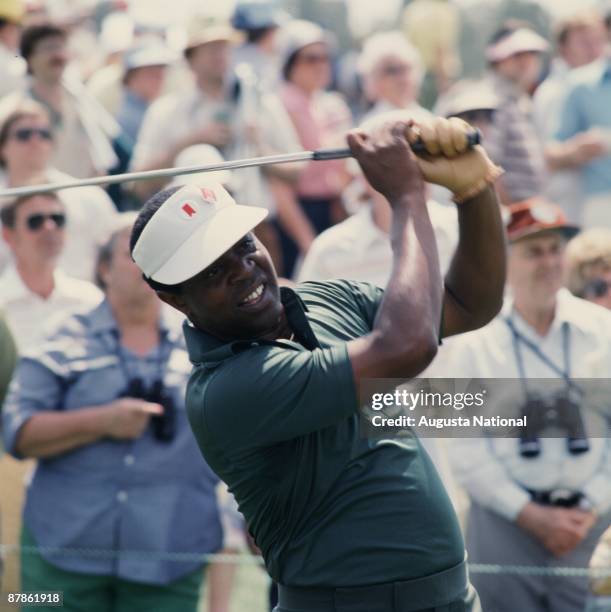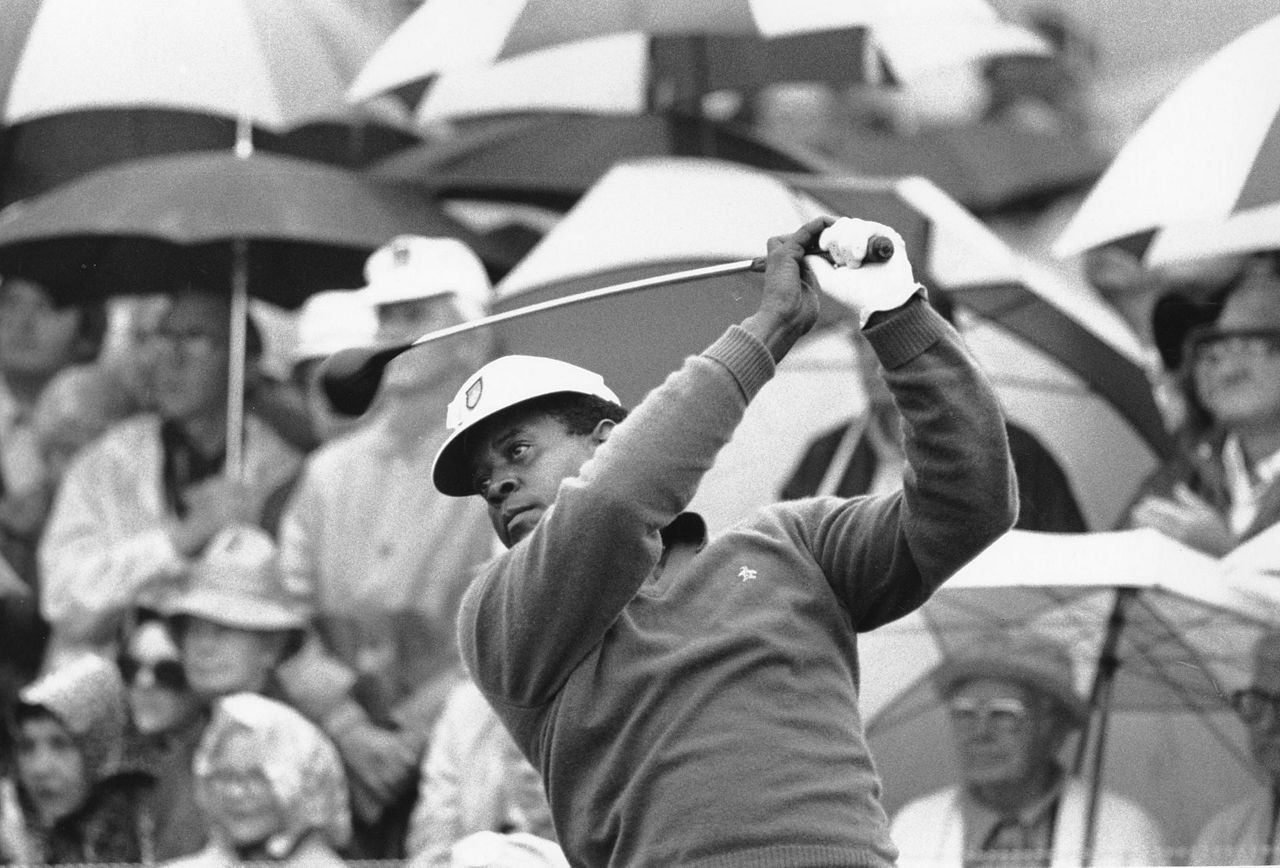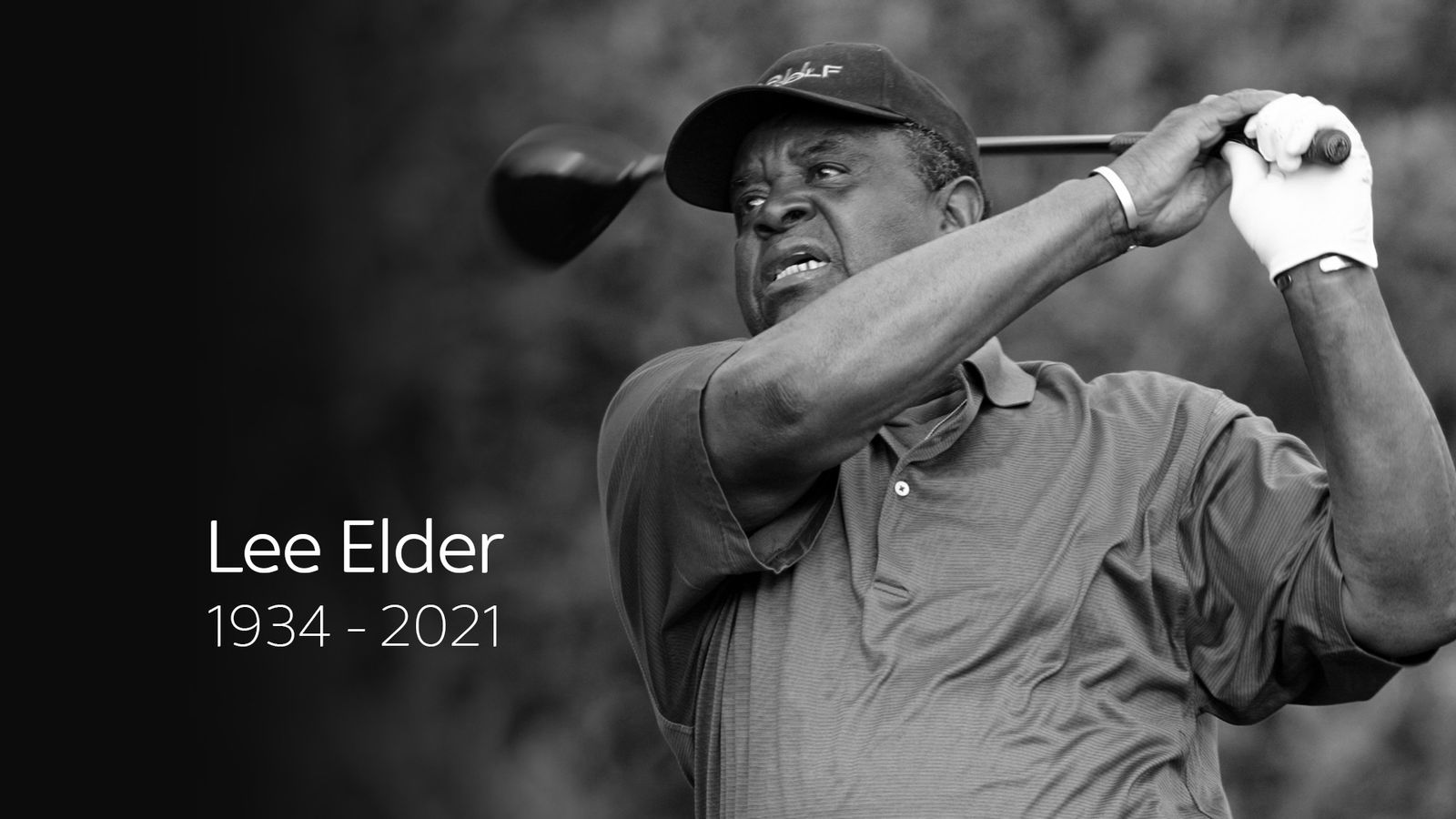Table of Contents
- Lee Elder News | Quotes | Wiki - UPI.com
- Masters: Lee Elder has his day in the sun at Augusta National
- Lee Elder: First African American to play at The Masters dies aged 87 ...
- US Open diary: Award for black pioneer Lee Elder | Sport | The Times
- 1978 Masters Tournament Photos and Premium High Res Pictures - Getty Images
- Lee Elder gets long overdue Augusta recognition with 2021 Masters invite
- Why Lee Elder should be a Masters honorary starter | Golf News and Tour ...
- The man who broke Augusta's race barrier | CNN
- Reaction to death of Lee Elder, 1st Black golfer at Masters
- Omicidio Cerciello Rega, nuovo processo per Lee Elder: denunciato per ...

It's been five decades since a pivotal moment in golf history, one that paved the way for future generations of golfers from diverse backgrounds. On April 10, 1975, Lee Elder became the first African American to compete in the Masters Tournament, breaking down racial barriers and challenging the status quo in the sport. As we commemorate this milestone, we honor the legacy of a trailblazer who faced adversity with courage and perseverance.


A Career Marked by Resilience
.jpg.rend.hgtvcom.966.1449.suffix/1573227958708.jpeg)
Lee Elder's journey to the Masters was not an easy one. Born in 1934 in Dallas, Texas, Elder grew up in a time of racial segregation and limited opportunities for African Americans in golf. Despite these challenges, he developed a passion for the sport, eventually turning pro in 1959. Elder's determination and natural talent earned him a spot on the PGA Tour, where he competed against some of the greatest golfers of his time.


A Historic Invitation

In 1975, Elder received the invitation that would change his life and the face of golf forever. The Masters Tournament, one of the most prestigious events in the sport, extended an offer for him to participate, marking a significant breakthrough in the fight against racial exclusion. Elder's presence at Augusta National Golf Club was met with a mix of excitement and controversy, but he remained focused on his game, determined to make a statement with his performance.


A Lasting Legacy
Lee Elder's participation in the 1975 Masters Tournament sent shockwaves throughout the golf world, inspiring a new generation of players from diverse backgrounds. His courage and resilience in the face of adversity have become a beacon of hope for those who followed in his footsteps. Today, golf is a more inclusive sport, with players from all over the world competing at the highest level. Elder's legacy extends beyond his own achievements, as he paved the way for other African American golfers, including Tiger Woods, who has often spoken about the impact of Elder's pioneering spirit on his own career.

A Celebration of Progress
As we reflect on the 50th anniversary of Lee Elder's historic Masters debut, we celebrate the progress that has been made in promoting diversity and inclusion in golf. While there is still work to be done, Elder's legacy serves as a reminder of the power of perseverance and determination. His story continues to inspire golfers and non-golfers alike, demonstrating that with hard work and dedication, anything is possible, regardless of the obstacles that may stand in the way.
In conclusion, Lee Elder's courageous stance at the 1975 Masters Tournament will always be remembered as a turning point in golf history. His legacy continues to inspire and motivate, serving as a reminder of the importance of promoting diversity and inclusion in all aspects of life. As we honor this milestone, we celebrate not only Elder's achievements but also the progress that has been made towards creating a more inclusive and equitable sport for all.
Key Takeaways:
- Lee Elder became the first African American to compete in the Masters Tournament in 1975.
- Elder's participation marked a significant breakthrough in the fight against racial exclusion in golf.
- His legacy has inspired a new generation of golfers from diverse backgrounds, including Tiger Woods.
- The 50th anniversary of Elder's historic debut serves as a reminder of the importance of promoting diversity and inclusion in golf.
Share your thoughts: How do you think Lee Elder's legacy has impacted the sport of golf? Share your comments below and join the conversation.